
OR
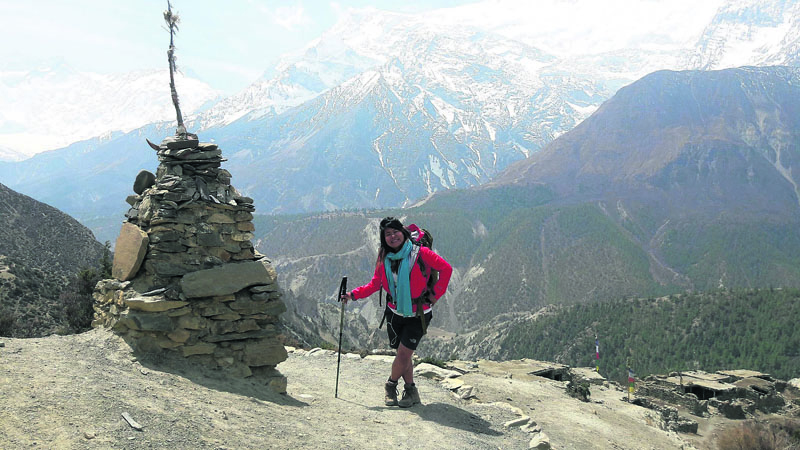
To be paid to travel is the dream of many but is it really all that is cooked up to be? The Week talked to two trekking guides and, as it turns out, it isn’t only the view that concerns them. There are many responsibilities and duties that come with the job. While they do enjoy the travel, it’s also a job that comes with its share of highs and lows. Here, we had them share their experiences.
Ritu Gyamdan
Nepal Female Guide
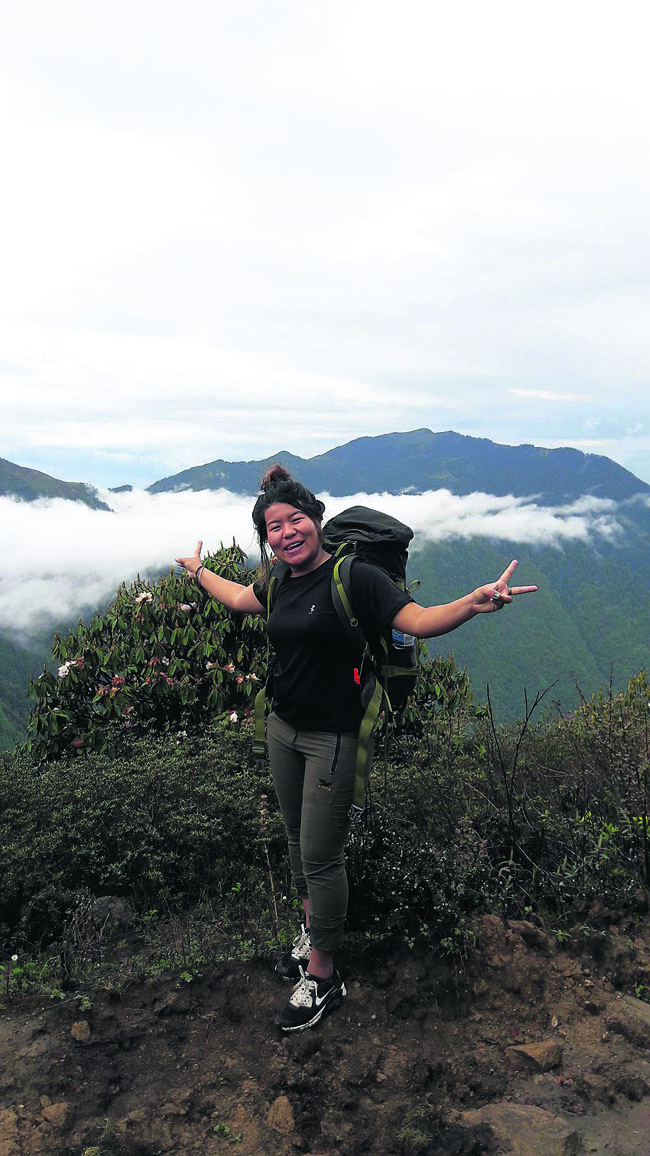 I hadn’t really traveled before becoming a guide. I had only studied.
I hadn’t really traveled before becoming a guide. I had only studied.
My home is in Rasuwa and tourists were a common sight there. I used to see them with their backpacks, sticks, and hiking boots, on their way to Langtang almost every day during tourist season. So I was one of those excited kids one often spots on their trekking routes.
But traveling or becoming a guide hadn’t crossed my mind yet. I actually came to Kathmandu to go to college. I was a hotel management student and initially considered that as my future. However, as time passed, I really missed the nature back home and I also kept thinking about all the tourists that would pass by all the time. So, eventually, I thought why not try and become a guide.
My most memorable experience was my first trek and it’s because I thought it might be my last as well.
After sitting through trainings and volunteering to accompany a couple of professional guides on their trips (since being a porter wasn’t an option for me), I and another female friend of my mine decided to go all the way and tackle the Annapurna Circuit.
At its highest, the circuit reaches 5,416 meters at the Thorong La Pass and by the time we got there, I finally understood what people were actually talking about when they talked about the physical and mental challenge of going on a trek. The latter stage of the 21 days was all about persisting, asking myself not to give up. It was such a toll that, at the moment, I genuinely believed I wouldn’t put myself through it again.
Obviously that wasn’t the case and that’s mainly because of the feeling of euphoria that you experience when you succeed. It’s really something else.
In my profession, you meet both nice and grumpy people.
Since I own my trekking company, I take most of the clients. In a single season, I tend to have an average of six to seven trips and that’s manageable. It isn’t as many clients as I want, but it’s only been three years that I have started on my own.
The competition is very tough for trekking companies and guides out there. There are thousands of us fishing for clients, so hospitality is a must. You can’t just carry a bag and walk to become a guide. You have to engage, entertain, and make their experience a good one. You are out there in the wilderness almost on your own so you get to understand your client’s character and interests in two or three days. I design my itinerary accordingly. The best thing to do is to be a step ahead and suggest activities, which you know they would enjoy. Whether it is a visit to a local school or yoga session out in the nature, it’s important for guides to understand their needs even better than they do.
But there are some clients who are just impossible to handle. In those instances, I feel a bit down. Even when you are trying your best to care for them, they get annoyed by your proper English pronunciation, or start demanding luxurious bathroom facilities at the middle of a mountain trail. Sometimes, it gets a little tricky.
Favorite thing about my profession
It has to be the experiences. I still remember trekking to the Tsho Rolpa lake and being in awe of nature. There was a lake, smack-dab in between all these tall mountains. You could practically feel the uniqueness of the place. Then there are the journeys you make to reach these sites – the 2 am walks with torchlights, tackling the steep hills and the downward slopes, sometimes even on snow. Even after all these years, it’s a challenge that proves to be worth it. I’m glad to help people, especially women, enjoy them.
Bikal Duwadi
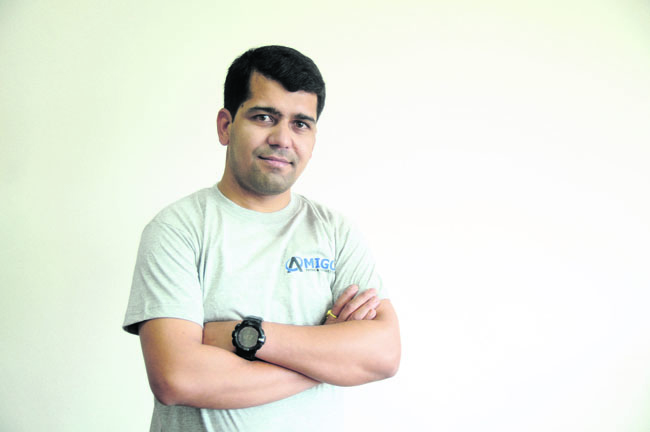 Amigo Treks & Expeditions
Amigo Treks & Expeditions
When I was a trainee, I talked less, listened more.
When I began trekking, it was a basically because I knew I would have to start working after my studies. The motive was to earn a living. Since I had acquaintances in the business, I decided to go with it.
There was the regular training period and then to gain experience, I had to work as an assistant. A profession like this really exposes you to different cultures and attitudes. Your job is to adapt to them whilst holding your position and doing your work. It’s task that requires some skills and experience. I saw how professional guides tried to understand their clients and so much of it depends on your social skills. So when I began, while learning about the various trails and ways to handle logistics, I also taught myself to observe and listen. I feel that by the time I became an official trekking guide this helped me have confidence in my abilities.
As I have traveled, I have witnessed many changes, some of which have been good while some have left me disheartened.
It’s been 12 years that I have been a professional guide and even though I find myself going to the same place again and again, it doesn’t quite feel like it. Change, after all, is dynamic process and everything from infrastructure and people to the environment has evolved over time.
As a guide, we are definitely thankful for the accessibility to various remote places. There have been many changes along popular routes like the Annapurna Circuit in the past six to seven years. Now, the routes are good, and there are places to stay that can accommodate more people and have better facility. Also, last but definitely not the least, communication has become so much easier. And yet, I can vouch that the hospitality of the locals remains the same.
On the other hand, we can’t afford to turn our backs on some rather unfortunate developments as well. What with the migration, many villages have been vacant. Also the effect of climate change has been drastic. While you don’t have problems of deforestation up in the mountains, the level snow has decreased significantly. I have witnessed these environmental changes first hand. It’s quite upsetting.
Favorite thing about my profession
I think I got into this profession without knowing what traveling really was. It was actually an eye opener. I realized that people live like this as well, traveling to different corners of the world. It certainly wasn’t a part of our culture back then. This is what I love about being a trekking guide – meeting different personalities with different attitudes and being introduced to international culture. It’s refreshing. I’m still in touch with my very first client, an Australian couple, and I’m fond of such interactions.

You May Like This
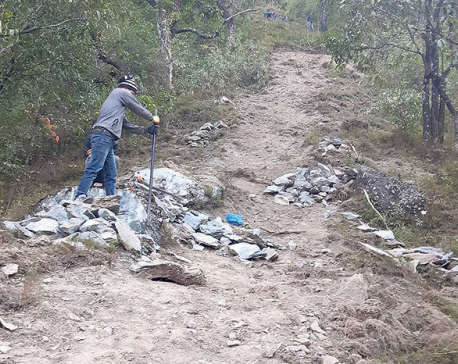
Work begins on walking trail from Beni Bazar to Lovely Hill
KATHMANDU, Dec 17: The work of building a new walking trail between Beni Bazar and Lovely Hill in Beni Municipality... Read More...

Katrina Kaif is Salman Khan’s leading lady in Bharat, replaces Priyanka Chopra
Katrina Kaif will be Salman Khan’s leading lady in Bharat after Priyanka Chopra quit the film in ‘Nick of time’,... Read More...
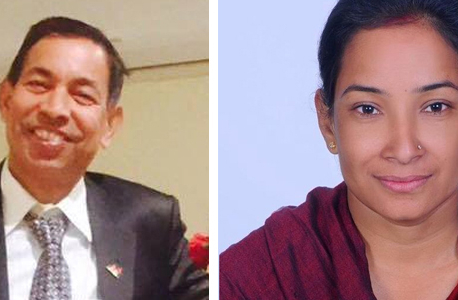
UML leading Maoist Center with 3, 389 votes in Bharatpur Metropolis
BHARTPUR, May 23: With the vote countin of Ward No. of 27 of Bharatpur Metropolitan City is over, CPN-UML mayoral... Read More...





Just In
- Kushal Dixit selected for London Marathon
- Nepal faces Hong Kong today for ACC Emerging Teams Asia Cup
- 286 new industries registered in Nepal in first nine months of current FY, attracting Rs 165 billion investment
- UML's National Convention Representatives Council meeting today
- Gandaki Province CM assigns ministerial portfolios to Hari Bahadur Chuman and Deepak Manange
- 352 climbers obtain permits to ascend Mount Everest this season
- 16 candidates shortlisted for CEO position at Nepal Tourism Board
- WB to take financial management lead for proposed Upper Arun Project






_20220508065243.jpg)







Leave A Comment